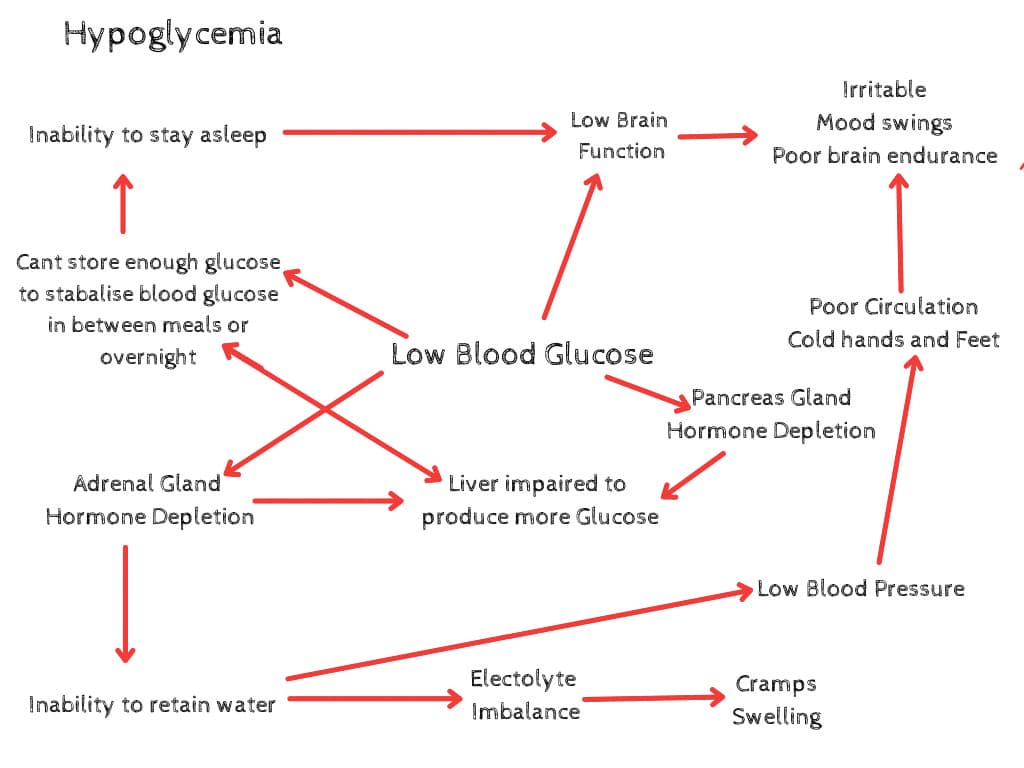
Eoin Roe has a chiropractic clinic in Skibbereen. He is also a certified functional medicine practitioner and provides help with chronic health conditions.
Call 087 9582362
www.roehealth.ie
In the third part of this series on blood sugar, we are going to look at what happens when blood sugar is too low, or we are riding a wave of reactive hypoglycaemia, which is when blood sugar spikes and then crashes shortly after eating.
It is important to note here that reactive or functional hypoglycaemia is not the same as a medical hypoglycaemic state, which is when blood glucose level is below 3.9 mmol/l on a blood test – this is a medical issue and should be investigated by your GP.

Although some of the symptoms related to hypoglycaemia may sound similar to insulin resistance, you will always find some element of insulin resistance and some element of reactive hypoglycaemia together, the trick is to understand whether you tend more to insulin resistance and metabolic syndrome or to low blood sugar and hypoglycaemia.
The difference will be evident when you start to look at your symptoms and how you eat – people who tend towards hypoglycaemia often are normal or low weight, eat what is considered a healthy diet, often with lots of fruit and vegetables, skip meals especially breakfast, and find that food makes them feel better immediately after eating.
Some of the common symptoms associated with low blood sugar are: Increased energy after meals; Cravings for sweets and snacks or coffee between meals; Irritability if meals are missed; Becoming lightheaded if meals are missed; Eating relieves fatigue; Feeling shaky or jittery; Feeling agitated and nervous; Poor memory and forgetfulness; Blurred vision; Becoming easily upset.
Probably the most important early sign is a change in energy level after you eat. If it improves, it is likely that your are suffering from low blood sugar and when you eat you feel better because your blood sugar has stabilised.
One of the most important things to understand about a healthy diet is that it needs to provide enough energy, not only to support what you are doing throughout the day, but also to provide enough fuel so that your body can store this as glycogen for use in times of fasting, such as when you are sleeping. Eating a diet that is high enough in protein and fats is also important. Your liver converts protein and fats into glucose when your body needs it. It is also important to understand that your brain only uses glucose for fuel, so if your blood glucose is constantly low, your ability to function and feel at your best is always impaired.
Low blood glucose can also impact your ability to stay asleep. When your body is functioning normally, four to five hours after you have eaten your blood glucose will drop; this will be balanced by your adrenal glands releasing cortisol, which promotes your liver to produce more blood glucose, by converting proteins and fats. If your liver is unable to do this because there is not enough stored glycogen, the excess cortisol in the system will wake you up. If you wake in the middle of the night and have something to eat, and you can then fall back to sleep, this is a sure sign that you have low blood sugar.
Lack of sleep is a major factor that impacts your health and feeling of wellbeing and further adds to the mental symptoms that can be caused by not having enough blood sugar. When you are asleep is the time that your body can rest and repair. Good sleep is important to help your immune system function properly and waking in the middle of the night will disrupt your circadian rhythm, which can have knock-on effect to hormone balance throughout the body.
There are many people reading this who may relate to the symptoms mentioned here and are trying to deal with other health issues like hormone balance problems, gastrointestinal problems, autoimmunity or other chronic health issues. If you are trying to deal with these whilst you have functional hypoglycaemia, where you don’t have enough energy to function properly throughout the day, it is going to be very hard to overcome them.
As with insulin resistance and metabolic syndrome, functional hypoglycaemia is caused by diet and lifestyle choices; reversing these will mean a change to diet and other lifestyle factors. Where as those suffering with insulin resistance may need to limit the amount of calories they are eating and periods of fasting can be very helpful for them – those suffering from hypoglycaemia should never fast – in fact they need eat more regularly, perhaps every three hours, and avoid snacks and foods that are high in sugar or carbohydrate and start eating a breakfast that is high in protein and fats.
If you would like help to manage your blood sugar or any chronic health problems please contact me on 087 9582362.


